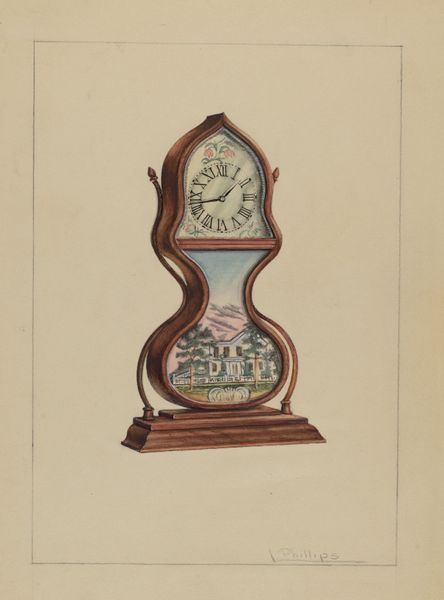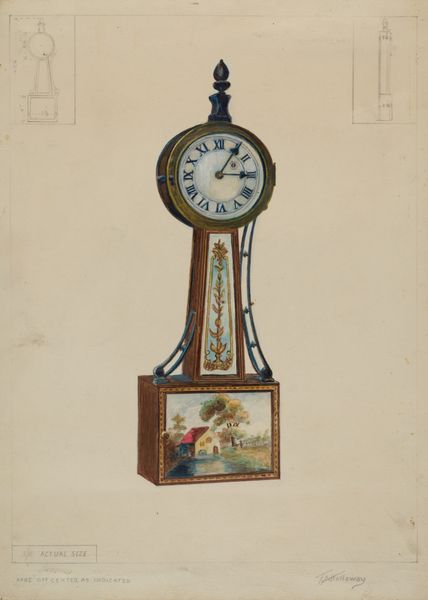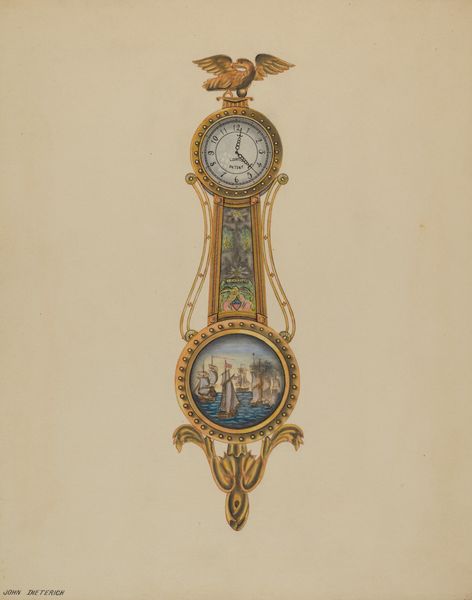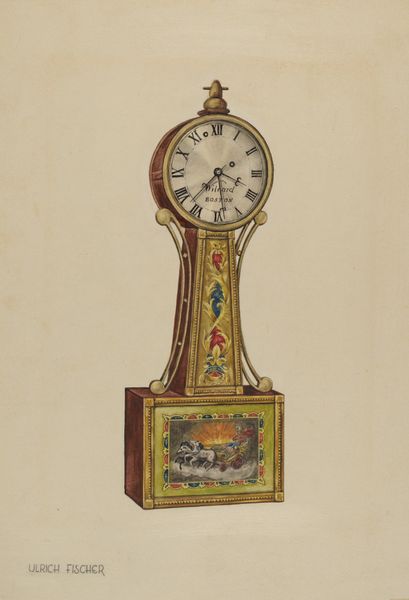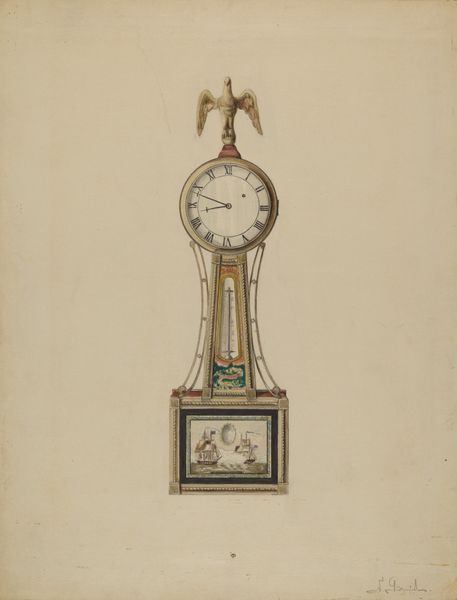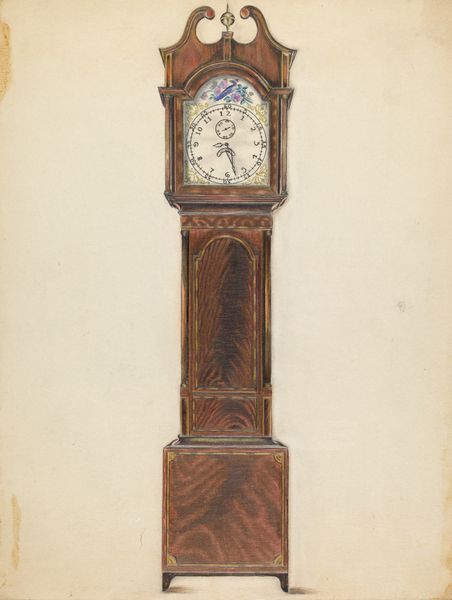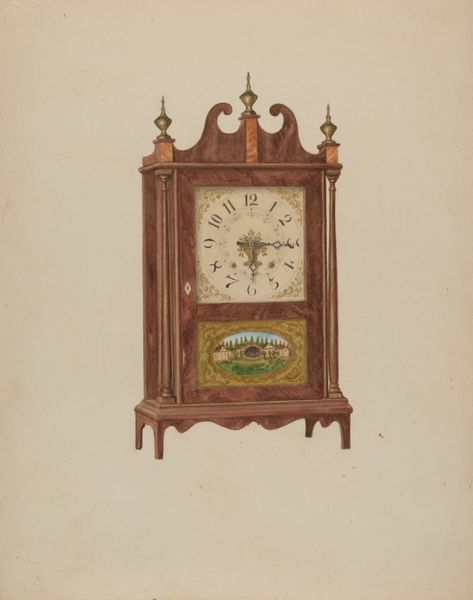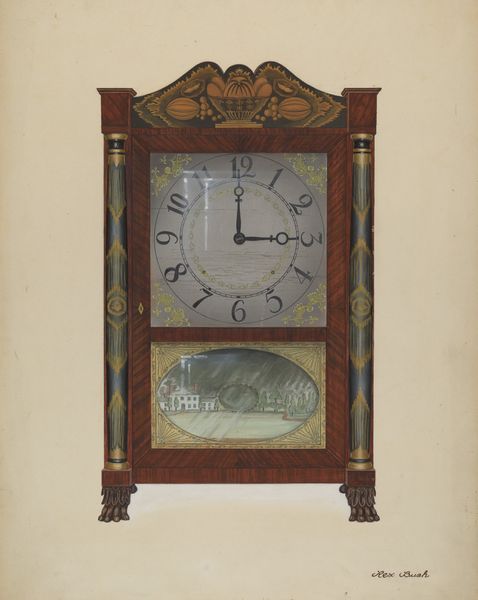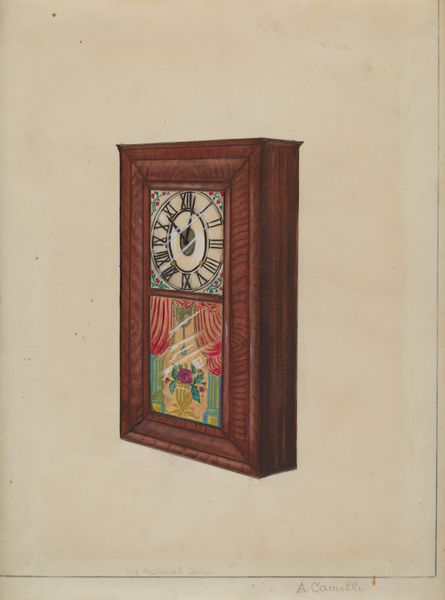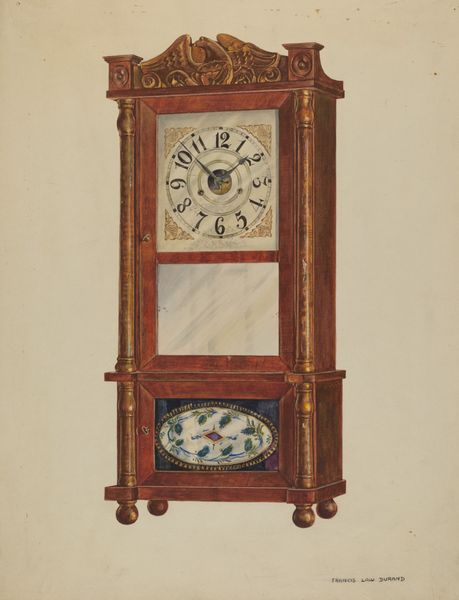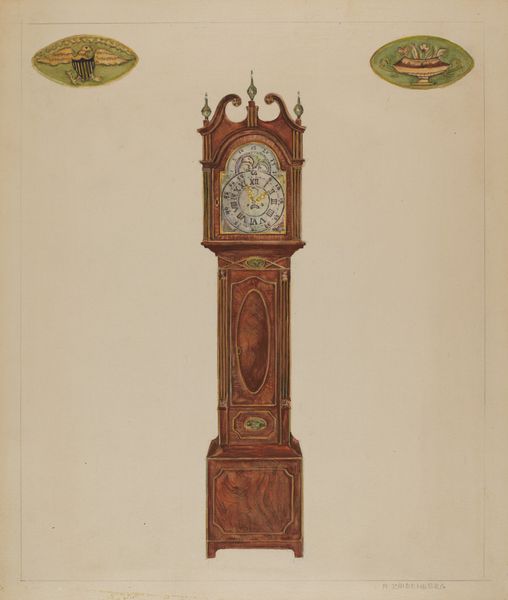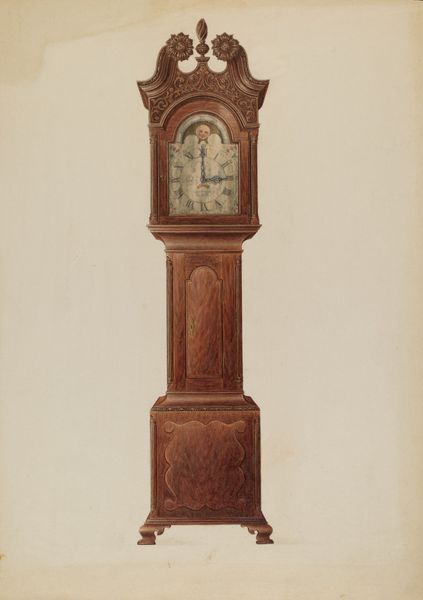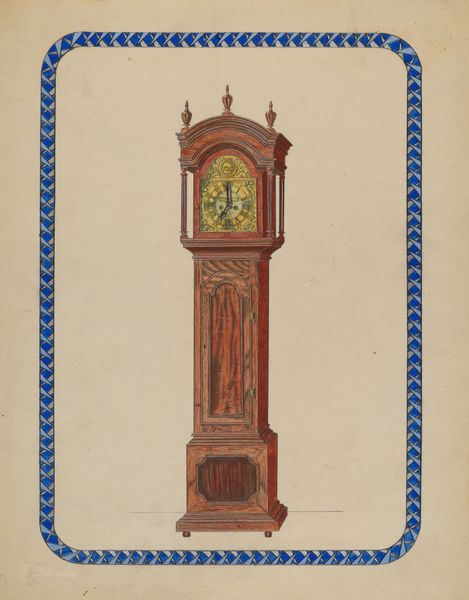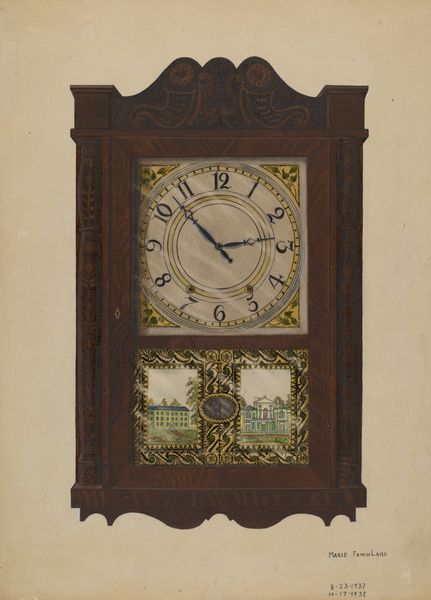
drawing, watercolor
#
drawing
#
water colours
#
watercolor
#
coloured pencil
#
orientalism
#
academic-art
#
watercolor
Dimensions: overall: 30.6 x 22.9 cm (12 1/16 x 9 in.) Original IAD Object: 45"high x 13 1/2"wide
Copyright: National Gallery of Art: CC0 1.0
Editor: Here we have George Loughridge's "Clock, Girandole" from around 1936, rendered in watercolor and colored pencil. It has a whimsical, almost theatrical quality, and I am curious, what can you tell me about it? Curator: Considering the context of 1936, let's look at the means of production and its intended social role. This drawing meticulously depicts an object for the domestic sphere. It is made using readily available and relatively inexpensive materials – watercolor and colored pencil. Now, this contrasts sharply with the object itself. Can you see how the Girandole suggests a certain aspiration to wealth and taste? Editor: Absolutely, it looks very ornamental! All of the decoration...it doesn't seem very functional. Curator: Exactly. We have to remember that the decorative arts were being heavily scrutinized in the interwar period. The emphasis was shifting towards mass production, simplicity, and functionality promoted by movements like Bauhaus. Editor: So, where does this Girandole drawing fit into that picture? Was Loughridge pushing back against those minimalist trends? Curator: Not necessarily "pushing back," but rather participating in the ongoing conversation about design and consumption. Drawings like this could serve various purposes. Perhaps it was a design proposal, a record of craftsmanship, or even a nostalgic commentary on pre-industrial aesthetics. Editor: It's fascinating to think about how even a seemingly straightforward image can hold so much social and economic information! Curator: Indeed. By focusing on the materials, techniques, and historical context, we reveal a lot about artistic intention and societal values concerning production. Editor: This has been a really eye-opening discussion. It makes you appreciate the layers behind a seemingly simple artwork.
Comments
No comments
Be the first to comment and join the conversation on the ultimate creative platform.
